Coca-Cola
Coke Sets Up JV With Chinese Dairy Giant To Sell Chilled Milk
 Coca-Cola has set up a joint venture with China’s Mengniu Dairy Co to produce and sell chilled milk in the country. The JV is “a reaffirmation of its long-term commitment to the Chinese market” the company said. It will look to make full use of the advantages of both companies, including dairy development and processing techniques, brand influence, and distribution channels. The partnership will create a portfolio of consumer-centric beverages, according to a Coca-Cola statement.[Image Credit: © The Coca-Cola Company]
Coca-Cola has set up a joint venture with China’s Mengniu Dairy Co to produce and sell chilled milk in the country. The JV is “a reaffirmation of its long-term commitment to the Chinese market” the company said. It will look to make full use of the advantages of both companies, including dairy development and processing techniques, brand influence, and distribution channels. The partnership will create a portfolio of consumer-centric beverages, according to a Coca-Cola statement.[Image Credit: © The Coca-Cola Company]
Coronavirus Lockdowns Dampen Sales, Coca-Cola HBC Reports
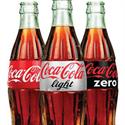
Soft drinks bottler Coca-Cola HBC (Zug, Switzerland) said April sales slid by more than a third as fast-food chains, theatres, and other public arenas stayed shut to limit the spread of the new coronavirus during stay-at-home orders. Net sales revenue fell 37.2 percent on a constant currency basis, with first-quarter sales slipping 1.2 percent to $1.52 billion. “After a strong start to 2020, March and especially April have been more difficult ... The strong performance in January and February ensured that we entered this crisis from a position of real strength,” CEO Zoran Bogdanovi said.[Image Credit: © Coca-Cola Hellenic Bottling Company]
Monster
Monster Turns In Healthy 1st Q Numbers, But Pandemic Damaged April Sales
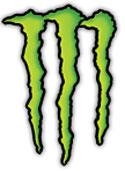 Monster Beverage Co. posted net income in the first quarter of $279 million, equal to $0.52 per share on the common stock, up six percent from $261 million, or $0.48 per share, in the same period a year ago. Net sales increased 12 percent to $1.06 billion from $946 million. Sales in the Monster Energy Drinks segment, which includes the Monster Energy and Reign Total Body Fuel brands, increased 14 percent to $993 million from $870 million a year ago. Sales for the Strategic Brands segment, which includes energy drink brands acquired from Coca-Cola, were down eight percent to $64.5 million. Strong international sales helped growth in the quarter despite the adverse impact of the coronavirus pandemic on new product launches in the U.S. New products introduced included three Reign Inferno beverages, two Monster Ultra line extensions, a line of Java Monster 300, a line of Monster Hydro Super Sport as well as NOS Turbo. The impact of COVID-19 on first-quarter sales and income was not material, the company said, but the pandemic “weighed heavily” on sales in April.[Image Credit: © Monster Energy Company]
Monster Beverage Co. posted net income in the first quarter of $279 million, equal to $0.52 per share on the common stock, up six percent from $261 million, or $0.48 per share, in the same period a year ago. Net sales increased 12 percent to $1.06 billion from $946 million. Sales in the Monster Energy Drinks segment, which includes the Monster Energy and Reign Total Body Fuel brands, increased 14 percent to $993 million from $870 million a year ago. Sales for the Strategic Brands segment, which includes energy drink brands acquired from Coca-Cola, were down eight percent to $64.5 million. Strong international sales helped growth in the quarter despite the adverse impact of the coronavirus pandemic on new product launches in the U.S. New products introduced included three Reign Inferno beverages, two Monster Ultra line extensions, a line of Java Monster 300, a line of Monster Hydro Super Sport as well as NOS Turbo. The impact of COVID-19 on first-quarter sales and income was not material, the company said, but the pandemic “weighed heavily” on sales in April.[Image Credit: © Monster Energy Company]
Nestle
Nestlé India’s January-March Performance Beats Analyst Estimates, Despite Pandemic
 stlé India Ltd reported a 13.6 percent increase in net profit for the quarter ended in March. Revenues grew 10.8 percent year-on-year (YoY). However, margins slipped due to increases in raw material prices, particularly milk and its derivatives. Higher employee costs affected EBITDA (earnings before interest, depreciation and taxation) margins. However, the numbers were still higher than analyst estimates, despite COVID-19-related supply chain issues. “Nestlé’s performance in 1QCY20 was ahead of estimates as the company continued its strong growth despite the disruption caused by covid-19," said HDFC Securities Ltd in a note to clients. Popular brands such as Maggi, KitKat and Nestlé Munch delivered strong performances, the company said.[Image Credit: © Nestle]
stlé India Ltd reported a 13.6 percent increase in net profit for the quarter ended in March. Revenues grew 10.8 percent year-on-year (YoY). However, margins slipped due to increases in raw material prices, particularly milk and its derivatives. Higher employee costs affected EBITDA (earnings before interest, depreciation and taxation) margins. However, the numbers were still higher than analyst estimates, despite COVID-19-related supply chain issues. “Nestlé’s performance in 1QCY20 was ahead of estimates as the company continued its strong growth despite the disruption caused by covid-19," said HDFC Securities Ltd in a note to clients. Popular brands such as Maggi, KitKat and Nestlé Munch delivered strong performances, the company said.[Image Credit: © Nestle]
Nestlé Nigeria: “Too Early To Quantify” Impact Of COVID-19 On Business
 Nestlé Nigeria Plc reported revenue of $194 million in the quarter ended March 31, 2020, slightly below the $196 million reported in the same period of 2019, according to the unaudited financial results posted on the Nigerian Stock Exchange (NSE) website. Profit before tax stood at $48.15 million, down from $53 million recorded in the same quarter of 2019. The company said in a statement that during the COVID-19 pandemic it is “working closely with the government, health authorities and other private sector players to respond to the challenge.” The company noted that it is too early to quantify the overall impact of the pandemic on its financial position, results of operations, or future cash flows.[Image Credit: © Nestlé (Malaysia) Berhad]
Nestlé Nigeria Plc reported revenue of $194 million in the quarter ended March 31, 2020, slightly below the $196 million reported in the same period of 2019, according to the unaudited financial results posted on the Nigerian Stock Exchange (NSE) website. Profit before tax stood at $48.15 million, down from $53 million recorded in the same quarter of 2019. The company said in a statement that during the COVID-19 pandemic it is “working closely with the government, health authorities and other private sector players to respond to the challenge.” The company noted that it is too early to quantify the overall impact of the pandemic on its financial position, results of operations, or future cash flows.[Image Credit: © Nestlé (Malaysia) Berhad]
Other Companies
Luckin Coffee Fires CEO, COO Over Fabricated Sales Reports
Matt McLean Buys Back His Old Company Out Of Dean Foods Bankruptcy
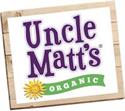 When Dean Foods filed for bankruptcy last November, after struggling with shifting consumer preferences, private label competition, and a reduction in milk processing, the founder of Clermont, Fla.-based Uncle Matt's Organic saw an opportunity to buy back the company he sold in 2017. Now, as of April 30, Matt McLean and a team of investors have done just that, under the auspices of a new parent company, Harmoni Inc. The McLean family was supported in the re-acquisition by a team of industry investors that includes: Gary Hirshberg, co-founder of Stonyfield Organic; John Foraker, CEO of Once Upon a Farm; Andrew Abraham, CEO of Orgain; Nicole & Peter Dawes, founders of Late July Snacks & Nixie Sparkling Water; Matt Rogers, founder of Nest and Incite.org; and Renewal Funds, a venture capital firm that supports organic companies. "If you told me three years ago after selling to a publicly-traded, multi-billion dollar CPG leader that I'd buy Uncle Matt's Organic back out of bankruptcy, I wouldn't have believed you," McLean said.[Image Credit: © Uncle Matt's Organic]
When Dean Foods filed for bankruptcy last November, after struggling with shifting consumer preferences, private label competition, and a reduction in milk processing, the founder of Clermont, Fla.-based Uncle Matt's Organic saw an opportunity to buy back the company he sold in 2017. Now, as of April 30, Matt McLean and a team of investors have done just that, under the auspices of a new parent company, Harmoni Inc. The McLean family was supported in the re-acquisition by a team of industry investors that includes: Gary Hirshberg, co-founder of Stonyfield Organic; John Foraker, CEO of Once Upon a Farm; Andrew Abraham, CEO of Orgain; Nicole & Peter Dawes, founders of Late July Snacks & Nixie Sparkling Water; Matt Rogers, founder of Nest and Incite.org; and Renewal Funds, a venture capital firm that supports organic companies. "If you told me three years ago after selling to a publicly-traded, multi-billion dollar CPG leader that I'd buy Uncle Matt's Organic back out of bankruptcy, I wouldn't have believed you," McLean said.[Image Credit: © Uncle Matt's Organic]
Canadian Juice Company Lassonde Posts Strong 1st Q Sales, Profits
 Canadian RTD juices and drinks company Lassonde Industries reported strong first-quarter earnings, attributing an increase in sales of $22.2 million for the quarter “largely due” to a jump in sales in its private label products. First quarter sales rose 17.1 percent, year over year, to $472.4 million. Lassonde believes that the pandemic could be impacting overall sales gains but said the first-quarter increase in sales “was largely due to an increase in sales of private label products.” CEO Nathalie Lassonde said the pandemic affected business in many ways, “and it is still difficult to estimate all of the consequences.” [Image Credit: © Lassonde Industries Inc.]
Canadian RTD juices and drinks company Lassonde Industries reported strong first-quarter earnings, attributing an increase in sales of $22.2 million for the quarter “largely due” to a jump in sales in its private label products. First quarter sales rose 17.1 percent, year over year, to $472.4 million. Lassonde believes that the pandemic could be impacting overall sales gains but said the first-quarter increase in sales “was largely due to an increase in sales of private label products.” CEO Nathalie Lassonde said the pandemic affected business in many ways, “and it is still difficult to estimate all of the consequences.” [Image Credit: © Lassonde Industries Inc.]
Lactose-Free Milk Buoys Dairy Sales As Pandemic Crisis Persists
 Sales of lactose-free milk have been on the rise recently, despite pandemic-caused closings of coffee shops and restaurants around the U.S. Though some American dairy farms have resorted to dumping milk to prevent an oversupply, producers of lactose-free milk have been significantly less affected because lactose-free milk is predominantly sold to consumers at grocery stores. Shopping for food is one of the few activities Americans are allowed to do as officials try to slow infections. Sales of lactose-free milk set records last year, and industry observers expect a global expansion of $118 million over the next three years, with North American dairy producers leading the demand followed by European and Asian markets. About $1.2 billion of lactose-free milk is sold in grocery stores annually. Producing lactose-free milk relies on mixing the enzyme lactase with milk.[Image Credit: © Imo Flow from Pixabay]
Sales of lactose-free milk have been on the rise recently, despite pandemic-caused closings of coffee shops and restaurants around the U.S. Though some American dairy farms have resorted to dumping milk to prevent an oversupply, producers of lactose-free milk have been significantly less affected because lactose-free milk is predominantly sold to consumers at grocery stores. Shopping for food is one of the few activities Americans are allowed to do as officials try to slow infections. Sales of lactose-free milk set records last year, and industry observers expect a global expansion of $118 million over the next three years, with North American dairy producers leading the demand followed by European and Asian markets. About $1.2 billion of lactose-free milk is sold in grocery stores annually. Producing lactose-free milk relies on mixing the enzyme lactase with milk.[Image Credit: © Imo Flow from Pixabay]
Uptain To Step Down As CEO Of Essentia Water
 Bothell, Wash.-based Essentia Water, a maker of ionized alkaline bottled water, announced that CEO Ken Uptain will step down effective June 1. Scott Miller, currently CEO of Tampico Beverages, Inc., will succeed him; Uptain will become executive chairman. Miller has more than 30 years of experience in the beverage industry, including stints at PepsiCo, Snapple, Gatorade, and Dr. Pepper. The company said the leadership change comes after its “most successful quarter yet,” with $74 million in retail sales.[Image Credit: © ESSENTIA WATER, LLC.]
Bothell, Wash.-based Essentia Water, a maker of ionized alkaline bottled water, announced that CEO Ken Uptain will step down effective June 1. Scott Miller, currently CEO of Tampico Beverages, Inc., will succeed him; Uptain will become executive chairman. Miller has more than 30 years of experience in the beverage industry, including stints at PepsiCo, Snapple, Gatorade, and Dr. Pepper. The company said the leadership change comes after its “most successful quarter yet,” with $74 million in retail sales.[Image Credit: © ESSENTIA WATER, LLC.]
Though Marketing Tactics Are Shifting, Ocean Spray Continues To Innovate
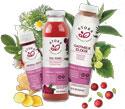 Ocean Spray Cranberries, Inc. (Middleborough, Mass.) announced the direct-to-consumer launch of its Atoka line of “herbalist craft beverages” from its internal Lighthouse product incubator. The herbal tonics and shots debuted in Boston late last year and were scheduled to roll out in retail stores across the country in 2020. The coronavirus pandemic, however, disrupted that plan, forcing the company to shift to e-commerce and social media. “It wasn’t our plan, or at least it was not a top priority originally,” said Rizal Hamdallah, global chief innovation officer. “It happened in the past six or seven weeks.” Meanwhile, the company will continue new product development during and after the COVID-19 crisis, testing new products and gaining insights from home-bound consumers during the pandemic. It is using digital access and tactics to test a new CBD beverage in Colorado, for example.[Image Credit: © Ocean Spray Cranberries, Inc]
Ocean Spray Cranberries, Inc. (Middleborough, Mass.) announced the direct-to-consumer launch of its Atoka line of “herbalist craft beverages” from its internal Lighthouse product incubator. The herbal tonics and shots debuted in Boston late last year and were scheduled to roll out in retail stores across the country in 2020. The coronavirus pandemic, however, disrupted that plan, forcing the company to shift to e-commerce and social media. “It wasn’t our plan, or at least it was not a top priority originally,” said Rizal Hamdallah, global chief innovation officer. “It happened in the past six or seven weeks.” Meanwhile, the company will continue new product development during and after the COVID-19 crisis, testing new products and gaining insights from home-bound consumers during the pandemic. It is using digital access and tactics to test a new CBD beverage in Colorado, for example.[Image Credit: © Ocean Spray Cranberries, Inc]
Instant Coffee Rides Crest Of Dalgona Whipped Coffee Fad
 The coronavirus pandemic is driving a big increase in instant coffee demand as homebound consumers whip up the foamy instant coffee beverage Dalgona. The beverage is made by whipping equal proportions of instant coffee powder, sugar, and hot water until it becomes creamy and then adding it to cold or hot milk. The beverage has swamped social media as people forced into isolation attempt to make the creamy concoction. Initial data point to a “massive rise” in demand for instant coffee, far higher than before the pandemic, according to a Mintel analyst. Consumers in lockdown began stockpiling instant coffee to give them energy and psychological comfort, while the product’s affordability makes it recession-resistant. Nestlé SA said sales of instant coffee increased in most markets as closures of restaurants and cafes boost home consumption and consumers are “rediscovering” the instant variety.[Image Credit: © Image by ivabalk from Pixabay]
The coronavirus pandemic is driving a big increase in instant coffee demand as homebound consumers whip up the foamy instant coffee beverage Dalgona. The beverage is made by whipping equal proportions of instant coffee powder, sugar, and hot water until it becomes creamy and then adding it to cold or hot milk. The beverage has swamped social media as people forced into isolation attempt to make the creamy concoction. Initial data point to a “massive rise” in demand for instant coffee, far higher than before the pandemic, according to a Mintel analyst. Consumers in lockdown began stockpiling instant coffee to give them energy and psychological comfort, while the product’s affordability makes it recession-resistant. Nestlé SA said sales of instant coffee increased in most markets as closures of restaurants and cafes boost home consumption and consumers are “rediscovering” the instant variety.[Image Credit: © Image by ivabalk from Pixabay]
Starbucks Opens Most Of Its U.S. Shops With Even Greater Reliance On Mobile App
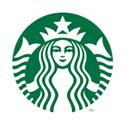 Starbucks has reopened 85 percent of its U.S. coffee shops while emphasizing mobile ordering, contactless pickup, and cashless payments, as more cities and states ease lockdown restrictions due to the coronavirus pandemic. The company’s mobile app, used by roughly 20 million customers, includes new options for voice ordering and curbside pickup. According to the company, the new protocols won’t be very disruptive, because more than 80 percent of its U.S. orders were already placed “on the go” via drive-throughs or the mobile app, even before the pandemic. The company is also ramping up investments in artificial intelligence that will help it make “data-driven decisions” about store re-openings and other changes. Starbucks shares rose 3.2 percent on May 5 after the company’s plan was made public.[Image Credit: © Starbucks Corporation]
Starbucks has reopened 85 percent of its U.S. coffee shops while emphasizing mobile ordering, contactless pickup, and cashless payments, as more cities and states ease lockdown restrictions due to the coronavirus pandemic. The company’s mobile app, used by roughly 20 million customers, includes new options for voice ordering and curbside pickup. According to the company, the new protocols won’t be very disruptive, because more than 80 percent of its U.S. orders were already placed “on the go” via drive-throughs or the mobile app, even before the pandemic. The company is also ramping up investments in artificial intelligence that will help it make “data-driven decisions” about store re-openings and other changes. Starbucks shares rose 3.2 percent on May 5 after the company’s plan was made public.[Image Credit: © Starbucks Corporation]
Copyright 2026 Business360, Inc.

